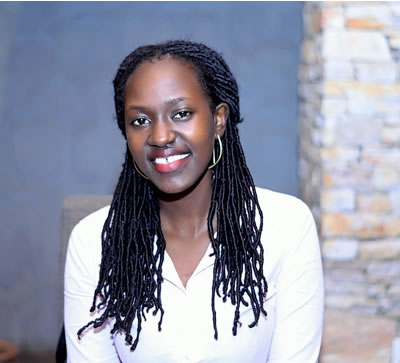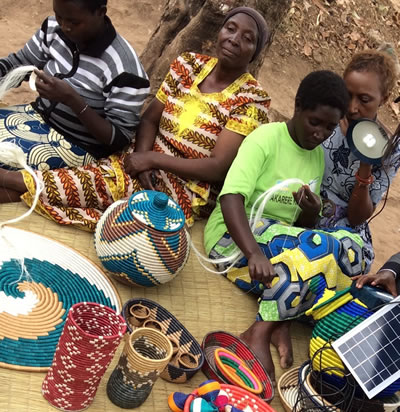Leah Uwihoreye from Rwanda, e-commerce platform entrepreneur
Leah Uwihoreye, a 26 year-old Rwandan computer engineer, started her entrepreneurship journey in June 2017 after visiting her family's village outside of Rwanda's busy capital.
In the village, Leah observed that many women where producing unique high-quality pieces of handicraft, such as handwoven baskets or jewelry, but were only able to sell them to the few foreign visitors who would sporadically stop by the village on their way to Rwanda's touristic sites.
While these sales represented a key source of earnings for these women, Leah realized that they did not provide for a sustainable livelihood.
It became clear to her that what these women really lacked was visibility and access to broader markets outside of the village, and that this market problem was common to many of the country's small and medium enterprises.
Leah decided to put her knowledge of technology to the service of these small producers and founded Made in Rwanda, her first online marketplace where, with a simple internet connection, small producers and women artisans from all over Rwanda can exhibit and trade their products.
"I believe that technology is a powerful tool to lift people out of poverty" says Leah, who, in addition to her managerial role in the start-up, dedicates time to train women from remote areas in computer literacy and who also delivers regular talks to female university students to encourage them to embrace the digital economy.
Eager to continue expanding her skills and encouraged by the rapid development of eCommerce in Rwanda, Leah decided to apply to the joint UNCTAD and Alibaba Business School eFounders Fellowship programme in June 2018.
She successfully attended the two-week course at Alibaba Headquarters, in Hangzhou, China.
"The course profoundly changed the way I do business. The Alibaba ecosystem was built on a strong vision and business culture that are shared among all employees. This is something that I find very inspiring"
While looking back at some of the key results of the course, she continues:
"I also realized that eCommerce has great potential when an ecosystem is created. It goes beyond online platforms and encompasses logistics and payment services. So now, my team and I focus on developing new partnerships in these areas"
When asked about what comes next for her start-up, Leah shares her wish to trade beyond borders:
"We want to enlarge our business outside of Rwanda's boundaries and help Eastern African women in Kenya, Uganda or Tanzania"
She acknowledges the challenges ahead, but is also conscious that young entrepreneurs across the continent are transforming the way people consume and produce:
"Being part of the eFounders community and sharing experience with my peers has motivated me to continue championing eCommerce.
I hope that we can contribute to advancing the digital agenda on our continent and help remove barriers to trade"
eFounders Fellowship Programme
UNCTAD’s smart partnership with the Alibaba Business School aims to bridge the digital divide in Africa and Asia and empower young e-founders in developing countries to become champions for the new economy.
The partnership is the brainchild of UNCTAD Secretary-General Dr. Mukhisa Kituyi and Jack Ma, founder and executive chairman of Alibaba Group, who served as a special advisor to UNCTAD on young entrepreneurs and small business.



